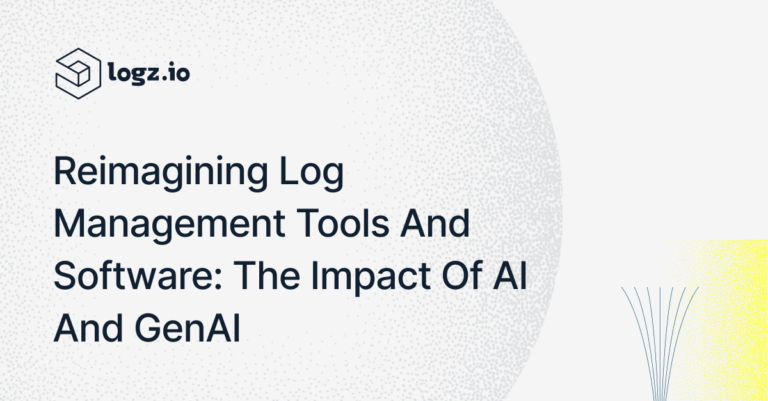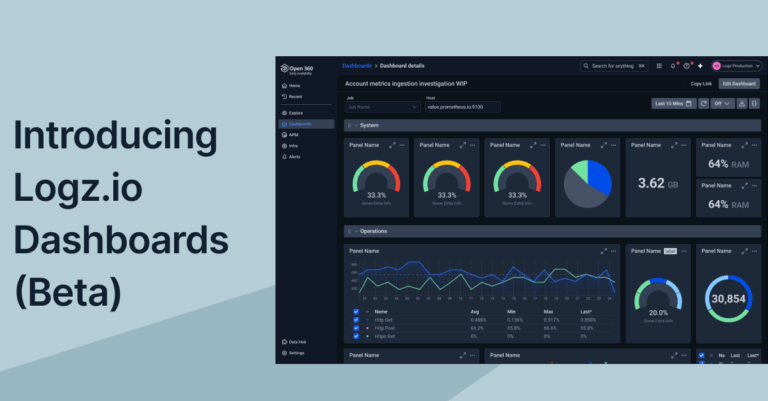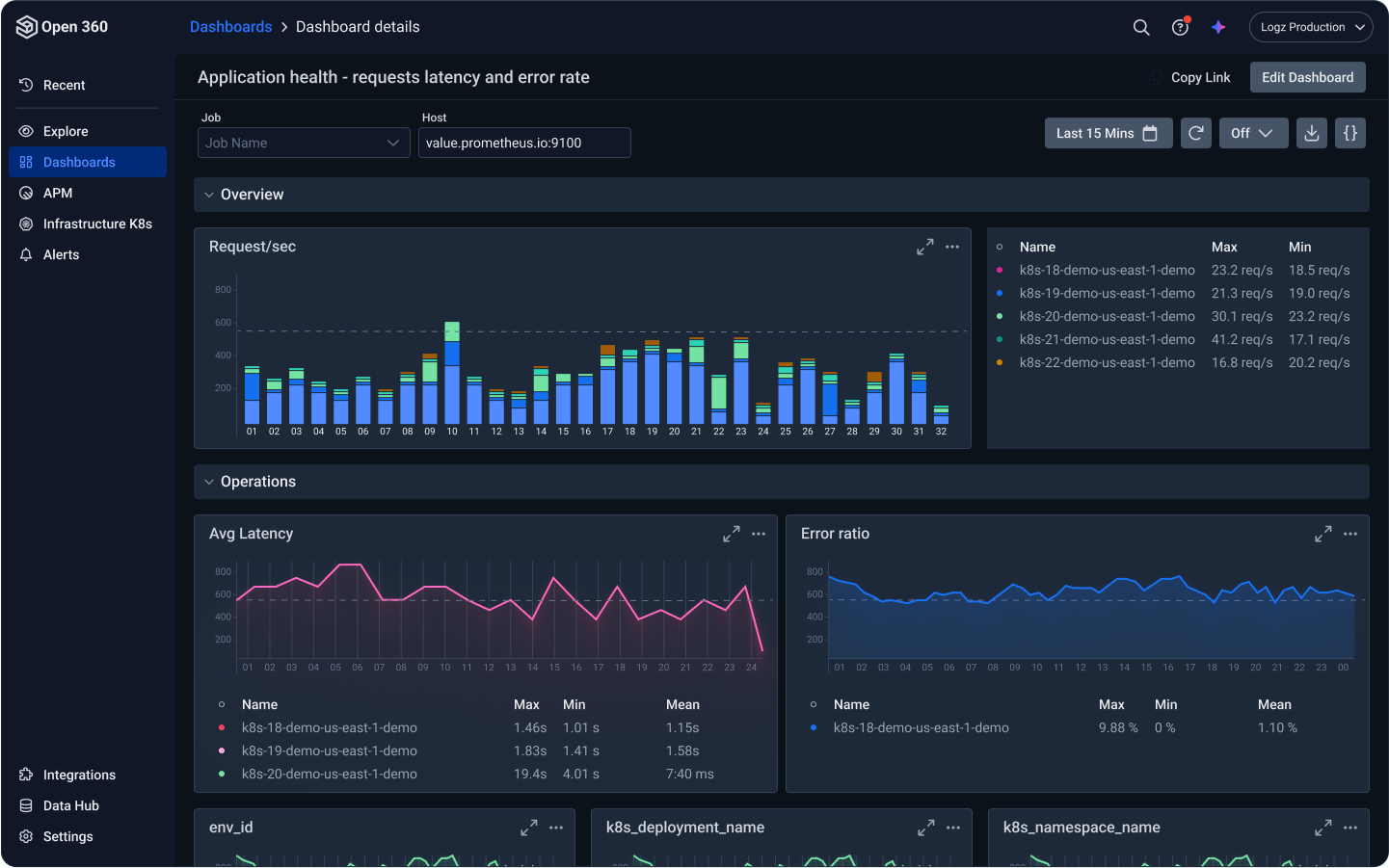
Top 5 Open Source Log Management Tools (and How to Choose the Right One)
June 8, 2025
Managing logs at scale is no longer just about storing text—it’s about gaining insights fast, keeping systems healthy, and troubleshooting in real time. With cloud-native architectures becoming the norm, the pressure is on for modern teams to adopt log management tools that are fast, scalable, and easy to use.
But with so many options, how do you choose the right one?
We’ve broken down five of the top open source log management tools—Logz.io, the ELK Stack, OpenSearch, Grafana Loki, and Graylog—so you can compare them across deployment, performance, insights, scalability, and cost.
What matters most when choosing a Log Management tool?
In this comparison, we’ll evaluate how these five log management solutions stack up across critical dimensions:
- Deploy in a snap: How fast and simple is the setup (SaaS, Docker, Helm, supports OTel)?
- Raw speed: How well it handles ingestion and query latency.
- Insights: From simple search to built-in AI and alerting capabilities.
- Scalability: Can it grow with your environment?
- Total cost: Licensing, infrastructure, and operational overhead.
- OpenTelemetry support: Native integration with Otel for seamless, vendor-neutral telemetry data collection.
Now that we’ve defined the “criterias”, let’s see how five of the most popular open source log management tools stack up—starting with the only fully managed option on the list.
1. Logz.io
- Deploy: Fully managed SaaS or Helm chart for Kubernetes. Ready in minutes.
- Speed: Built on a custom, cloud-native architecture with S3-based storage for blazing performance.
- Insights: AI Agent for anomaly detection, RCA, and natural language search; plus prebuilt dashboards and alerts.
- Scalability: Scales automatically, no tuning required.
- Cost: Pay-as-you-go model with hot, warm, and cold storage tiers.
- OpenTelemetry: First-class Otel support with easy setup and native integrations.
💡 Why it stands out: Combines the best of open source with the convenience of SaaS. No maintenance, no tuning, AI insights out of the box, platform synergy to correlate, logs, metrics and traces. Plus, tight Otel integration makes it ideal for modern observability pipelines.
2. ELK Stack
- Deploy: Self-hosted with Docker, Kubernetes, or Helm.
- Speed: Powerful, but requires manual tuning as data grows.
- Insights: Good visualization in Kibana, but no built-in AI or automation.
- Scalability: Scales with effort—requires hands-on sharding, node management, and upgrades.
- Cost: Software is open source, but infrastructure and maintenance costs can balloon.
- OpenTelemetry: Can ingest Otel data with custom pipelines, but no native support.
💡 Why choose it: Ideal for teams with Elasticsearch expertise and resources to manage infrastructure
3. OpenSearch
- Deploy: Self-managed or through AWS OpenSearch Service.
- Speed: Solid for most use cases, especially on AWS.
- Insights: Dashboards and alerting included, but no AI or RCA tools.
- Scalability: Easier to scale on AWS; self-hosted clusters require manual tuning.
- Cost: Open source base, but managed services can add up.
- OpenTelemetry: Partial support—Otel collectors can push data, but setup isn’t turnkey.
💡 Why choose it: Good choice for AWS-native teams that want ELK-like functionality without licensing concerns (can get expensive over time).
4. Grafana Loki
- Deploy: Lightweight Docker or Helm deployment.
- Speed: Optimized for basic logs; struggles with complex, high-cardinality data.
- Insights: Integrates with Grafana dashboards; lacks advanced analysis or AI.
- Scalability: Can scale horizontally, but query speed suffers at high volumes.
- Cost: Fully open source; efficient for smaller workloads.
- OpenTelemetry: Solid OTel integration, especially when paired with Grafana Tempo and Mimir.
💡 Why choose it: Best for teams already using Grafana who want lightweight log ingestion and basic search.
5. Graylog
- Deploy: Offers Docker images, OVA, and Helm charts.
- Speed: Good for small to medium workloads; larger environments may need tuning.
- Insights: Customizable pipelines, correlation capabilities, no AI.
- Scalability: Supports clustering; enterprise version improves this.
- Cost: Free open source tier, plus a paid enterprise option.
- OpenTelemetry: Otel support available via extensions and custom pipelines.
💡 Why choose it: Best for teams who want full control over log processing and transformation with a GUI-focused interface.
How they stack up
Use case recommendations
→ For enterprises seeking full observability: Logz.io offers the most comprehensive and managed solution with minimal operational overhead and advanced AI capabilities.
→ For organizations with existing Elasticsearch expertise: The ELK Stack provides maximum customization if you have the team to manage it.
→ For AWS-centric deployments: OpenSearch offers tight AWS integration with less operational complexity than self-managed ELK.
→ For Grafana users needing basic logging: Loki integrates seamlessly with the existing Grafana stack.
→ For organizations needing built-in processing pipelines: Graylog offers log transformation and custom pipelines without additional components.
Simplified Observability with AI Insights
Stop spending time on complex setups and disconnected tools. Logz.io unifies logs, metrics, traces, and AI-powered insights into a single platform, focusing on open standards like OpenTelemetry to ensure flexibility and scalability.
Whether you’re scaling your business or solving issues in the middle of the night, we make it easy and cost-effective to keep everything running smoothly.




